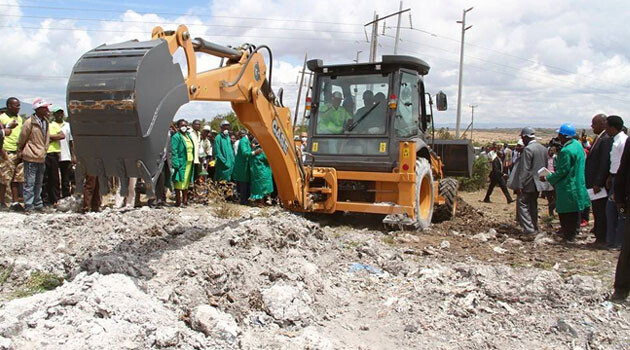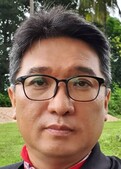
THIKA, KENYA — Kiambu County is currently at the forefront of advancing sustainable waste management practices, hosting a UN-Habitat-led training program focused on the innovative Fukuoka landfill management technique. The program, running from February 25 to March 1, has attracted over 19 participants from various African nations, all eager to learn and implement this environmentally conscious approach.
The training, held at the Kang'oki Landfill in Thika, centers on the Fukuoka method, a Japanese semi-aerobic landfill technique that has proven highly effective in accelerating waste decomposition and reducing harmful methane emissions. This method, initially implemented at Kang'oki in 2015 under former Governor William Kabogo, involves introducing air to the landfill’s base, significantly enhancing the breakdown of waste.
During the opening address at the county headquarters, CECM David Kuria of Kiambu County’s Department of Water, Environment, Natural Resources, Energy, and Climate Change emphasized the county’s unwavering commitment to environmental sustainability and knowledge exchange. “Kiambu County is committed to sustainable waste management solutions that ensure a cleaner and healthier environment for our residents,” Kuria stated. “Through strategic partnerships like the Africa Clean Cities Platform (AACP), we continue to advance innovative practices that will shape the future of landfill management.”
The Fukuoka method offers numerous advantages, including its simplicity in construction, cost-effectiveness, increased waste decomposition rates, and significant reduction in methane emissions. It relies on readily available materials and equipment, making it highly applicable in various contexts, including Kiambu and across Africa.
A key aspect of the Fukuoka technique is its emphasis on minimal human intervention, allowing natural ecosystems to drive land restoration. This approach fosters ecological balance, enabling the land to naturally regenerate and yield more resilient trees, healthier soil, and increased plant diversity.
The insights and knowledge gained from this training will be presented at the 4th ACCP assembly, scheduled for August in Yokohama, Japan. These findings will play a crucial role in shaping universal waste management policies for the next three years, contributing to a more sustainable future for cities across the globe.
This training program underscores Kiambu County’s leadership in adopting and promoting innovative environmental solutions, setting a precedent for other regions striving for sustainable waste management practices.
[Copyright (c) Global Economic Times. All Rights Reserved.]






























